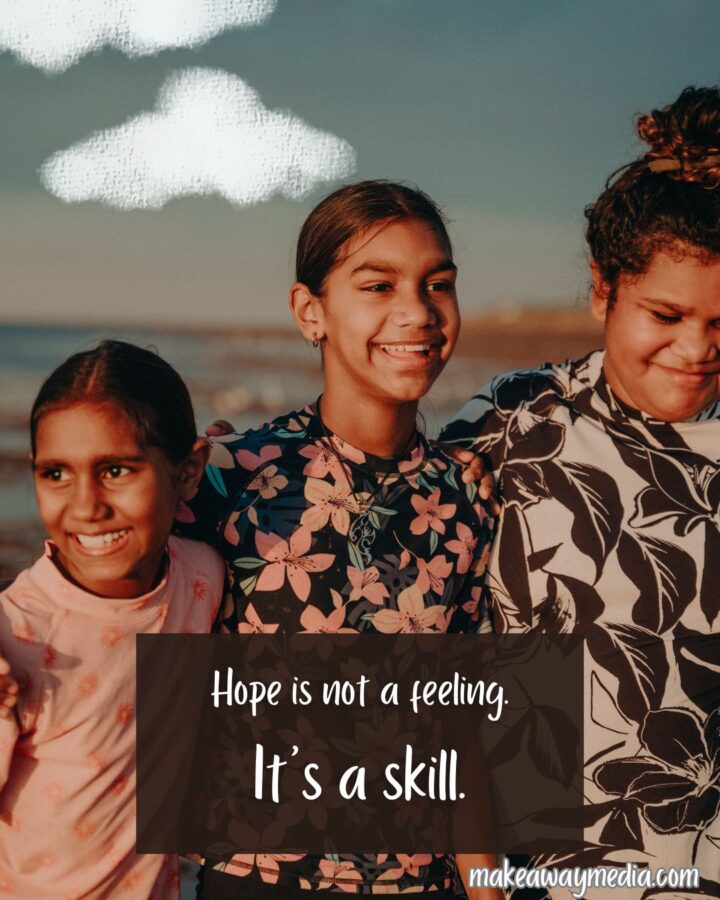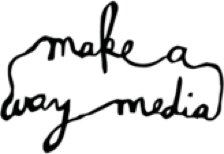There’s a moment in every life where something shifts. For me, that moment came quietly but unmistakably—like a puzzle piece finally clicking into place. It happened not in a classroom or on a stage, but in the presence of a young person who had no sense of tomorrow and no ability to dream.
As a therapist, I’ve sat with hundreds of children, teens, and families working through everything from fear and uncertainty to deep despair. But there was one session I’ll never forget. A child—barely a teenager—looked me in the eyes and said, “What’s the point of dreaming if it’s never going to come true?” The words were painful. Not because I hadn’t heard something like it before, but because in that moment I realized something profound:
This child had never been taught how to hope, much less how to dream. 
We talk so much about coping skills—how to manage stress, breathe through anxiety, regulate emotions. But what about hoping skills? Who teaches you how to hold on when everything tells you to let go? Who shows you how to dream again after life has let you down, over and over?
That question stirred something deep within my mind and my heart.
As I sat with that child, I saw a mirror. I remembered the parts of my own journey where hope was the only thing I had left. The times I didn’t know how I was going to keep going—but I did. The truth is, I didn’t just feel hopeful. I practiced hope. I probably poured into hope as much as hope poured into me. I built it, slowly, intentionally, like a muscle that needed training. And I realized then: hope is not a feeling. Hope is a skill.
That realization changed everything for me.
From that moment on, I made it my mission to teach hope the same way I taught emotional regulation, problem-solving, or communication. I began developing tools, writing books, and creating conversations around what it looks like to build hope—especially for those who’ve never had it modeled for them.
That’s how The Hoping Skill™ was born.
It’s more than a phrase. It’s a lifeline.
Hope is the belief that tomorrow can be different, even if today is hard. It’s the invisible thread that connects where you are to where you want to be. Without it, even the smallest tasks feel heavy. Time feels meaningless. Motivation fades. And dreams? They disappear entirely. And all that lives in your brain about dreams is that they were never meant for you. This is depression. This is a lie. Dreams were made for all of us.
A life without hope is not just sad—it’s dangerous. It leads to despair. To isolation. To a kind of emotional numbness that slowly convinces you there’s no point in trying. Without hope, people stop caring. They stop planning. They stop believing in themselves. They stop seeing their own worth. They stop living.
But hope? Hope brings light. It gives us a reason to get out of bed. It whispers, “Keep going.” It fuels action, resilience, and courage. It reminds us that we might be down, but we are not out.
That’s why every human being must have hope. Not because life is easy—but because life is often hard. And hope is what makes us brave enough to face that truth and still move forward.
 Hope is not just for the privileged or the lucky or the ones born into easier circumstances. Like dreams, hope exists for everyone. But like any skill, it needs nurturing. It needs daily attention. It needs to be seen as essential—not optional.
Hope is not just for the privileged or the lucky or the ones born into easier circumstances. Like dreams, hope exists for everyone. But like any skill, it needs nurturing. It needs daily attention. It needs to be seen as essential—not optional.
When did you first learn to hope?
If you’re still figuring that out, I want you to know—it’s not too late. You can learn it now. And it is life changing. You can teach it to your children and to others. You can pass it on like a torch. Because we are not just coping our way through life—we are dreaming, healing, and beginning again.
One hopeful skill at a time.

